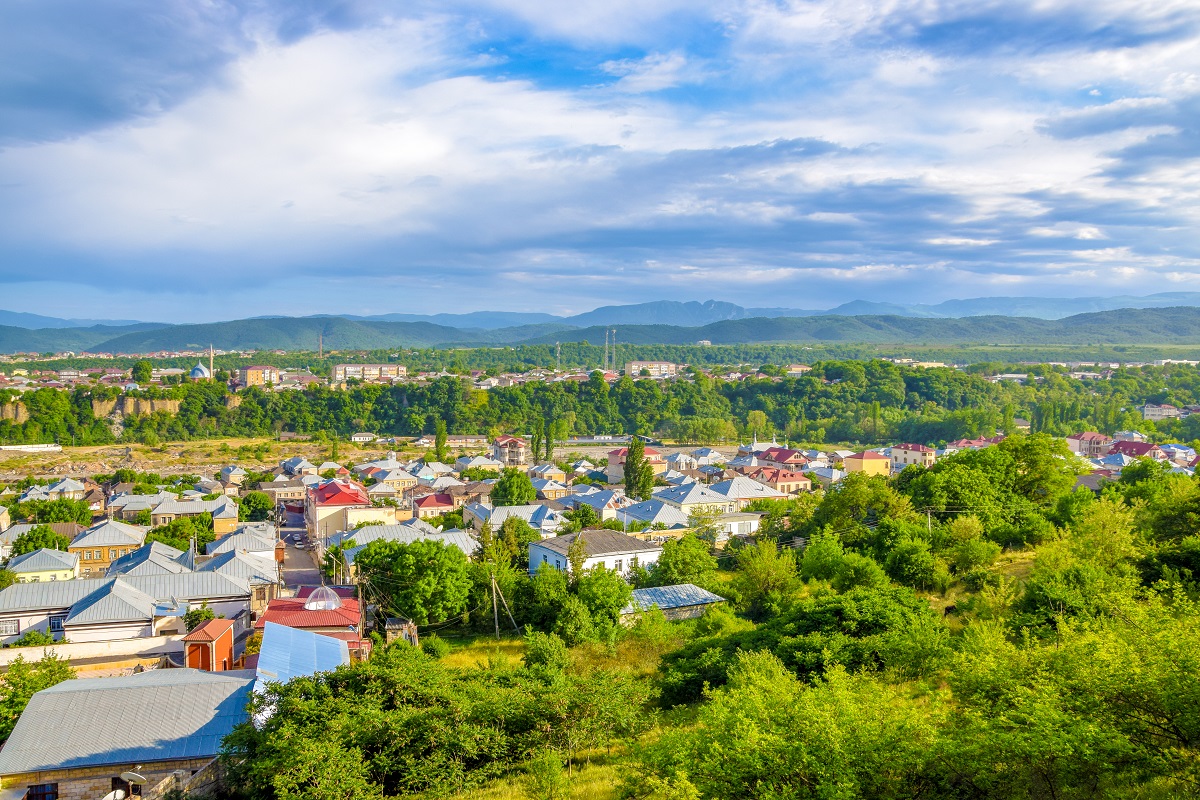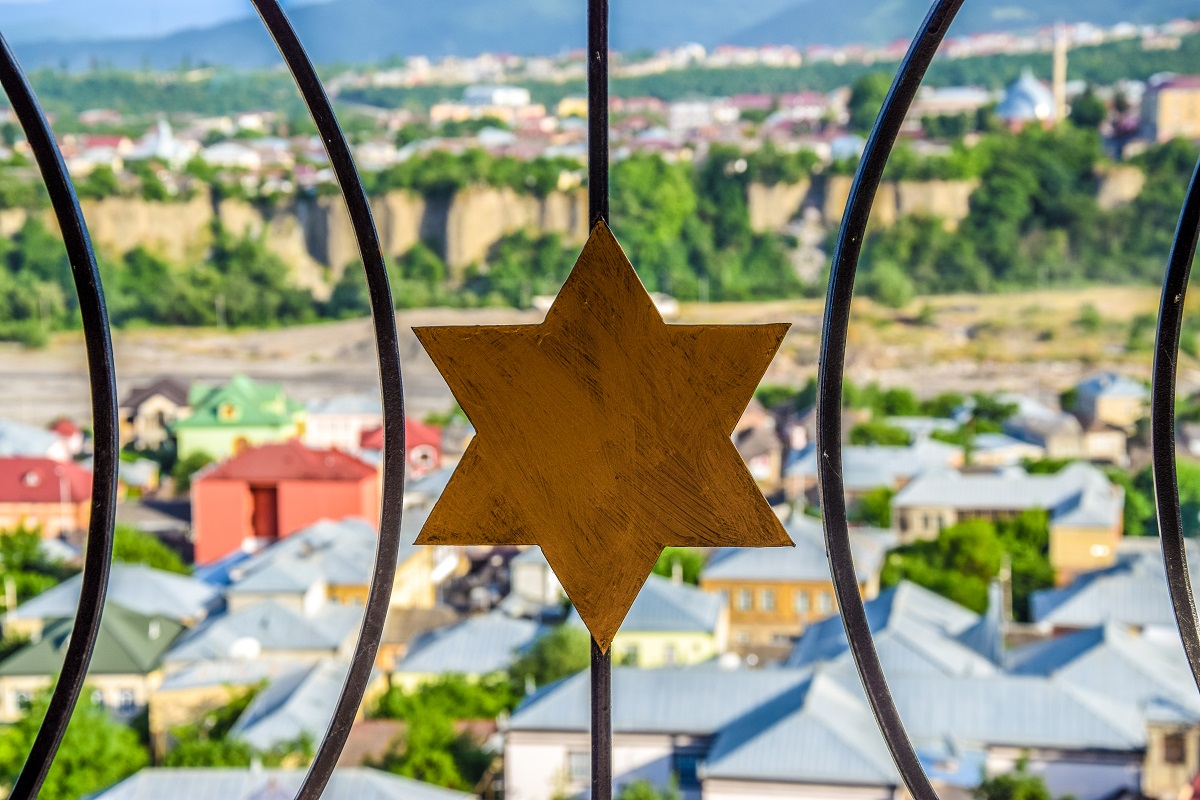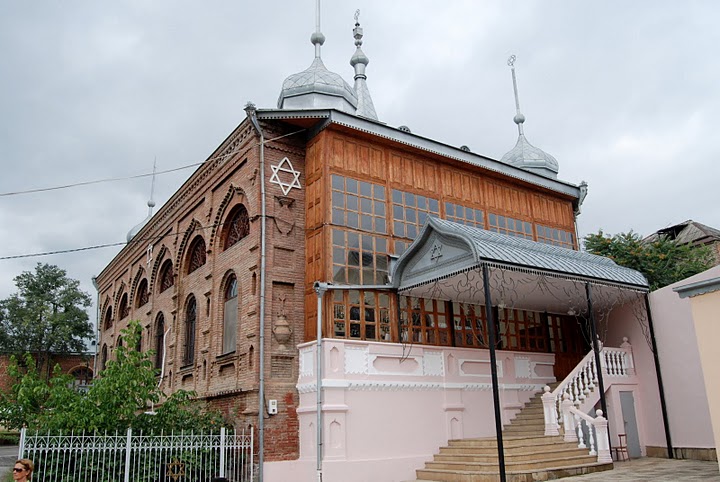Quba Khanate (Guba) was ruled by Hussein Ali Khan in the 18th century. Under his rule, the capital was moved from Khudat to Quba which strengthened the economic foundation of his khanate. This included bringing in many craftsmen and tradesmen, many of whom were Mountain Jews from the destroyed settlement of Kulqat. They established a new settlement known as Qirmizi Qasaba (Red Town), which developed rapidly during the reign of the succeeding ruler of Quba, Fatali khan. Fatali khan joined south Dagestan and the entire north east of Azerbaijan under his state.
As a result of the economic rise and the friendly attitude towards Jews, the Jewish population of Qirmizi Qasaba, a small village in Quba, was rapidly increasing. Groups of Jews were coming here from different parts of Azerbaijan, as well as Iran, Turkey and Dagestan. Thus, the population of Qirmizi Qasaba was 3,000 in 1856, 5,120 in 1873, 6,280 in 1886 and 8,400 in 1916, which was the town’s record population. Since then, the population of the town has been constantly decreasing. Fatali khan’s period is considered a true renaissance of Qirmizi Qasaba and the Mountain Jews and even now, the central street of the town carries his name.

Today, 300 years later, Qirmizi Qasaba is a settlement with a population of 3,000, although many people, especially the youth, leave the town to pursue a better life in Russia, the USA and Israel. Qirmizi Qasaba is believed to be the world’s only all-Jewish town outside Israel. The village is connected to the city of Quba via a bridge across the Qudyalchay River. The most widely spoken language in Krasnaya Sloboda is Juhuri. Azerbaijani and Russian languages are also widely used. The town, which stretches from south-west to north-east along Qudyalchay River, is divided into three main neighborhoods: Qusari, Gilaki and Qachayi. Qirmizi Qasaba used to have 13 synagogues though today, only two of them function and four are partially ruined.
All the houses in Qirmizi Qasaba are facing the main streets running parallel to the river. The houses are not built in accordance with a certain city plan but are rather crowded together. Most older buildings are made from flat brick and red-tiled roofs. Hillel Ben-Hayyim, who constructed many houses and synagogues in a unique, richly ornamented manner, has left his signature style in the entire village. Most houses have two, or more floors. The closed courtyards were used during the festival of Sukkot to make booths in which the families traditionally lived during the seven days of the festival.

The house of Aghababayevs was repurposed as a library and administrative building in Soviet times. People of Qirmizi Qasaba have been engaged in small trades, crafts and played an important role in the carpet weaving school of Quba. Predominantly a female occupation, some women from Quba gained fame as first-class artisans. Most of them spun and dyed their own wool. The madder plant, from which a red dye was extracted, and the saffron, used for a yellow dye, were both cultivated by Jews. The indigo plant, which yielded a blue dye, was imported to the Caucasus by Jewish merchants. The Mountain Jews supplied markets with these goods until the mid-19th century, when they were forced to halt their operations because of the nomadic way of life imposed on them. However, after the Soviet regime established workers’ collectives and home industries in the 1930s, Caucasian Jewish women resumed the art of weaving.

Carpets with different Jewish motifs such as menorah and dragons from Quba. Such carpets will be displayed in the Mountain Jew Museum to be opened in October, 2019. Qirmizi Qasaba is the home of many well-known politicians, businessmen, scientists, and notable figures living and working in Russia, Israel, USA, Germany, the United Kingdom, and Azerbaijan. Among them are the Russian entrepreneurs Zarah Aliyev and God Nisanov, the Soviet orthopedist Gavril Ilizarov (who invented a special device for treating skeletal deformities), as well as the family of musicians Ilizarovs, the writer Vladimir Aghababaev, poet Yasha Mashiahov, Olympian fencer and trainer Zinaida Misheva and others.
The new development plans in Qirmizi Qasaba include restoring the ruined synagogues, as well as establishing many other attractions, such as the Museum of Mountain Jews, Tourism Information Centers, restaurants of Kosher food, and more.

